The views expressed in our content reflect individual perspectives and do not represent the official views of the Baha'i Faith.
Ever since she was young, Radiance Talley has turned to poetry to give voice to her thoughts and how she made sense of the world around her.
RELATED: Reflections on the Healing Power of Poetry
Having faced racism, isolation, and depression in her youth, poetry became her solace, her intimate friend, and a cathartic release through difficult times. Today, Radiance continues to write poems that reflect her views of the world. As a young Black woman and member of the Baha’i Faith, much of her work is informed by Baha’i principles of racial unity, equity, and justice.
RELATED: Patiently Striving to Create Beauty From Pain — With Radiance Talley
In this interview, Radiance answers a few questions about her journey through life as an artist, the motivation behind her poetry, and the teachings and stories of the Baha’i Faith that inspire her work.
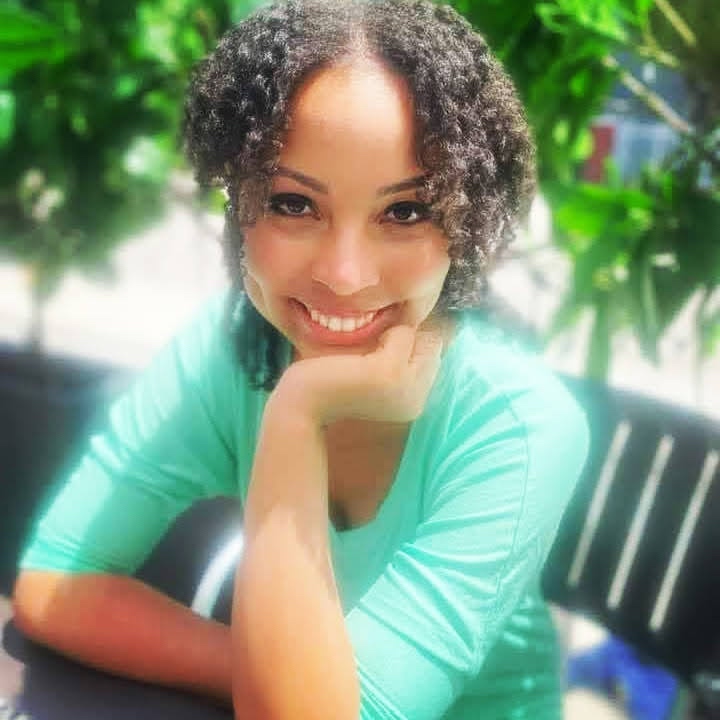
Shadi Toloui-Wallace: What kind of creative experiences were you exposed to while growing up?
Radiance Talley: My mother is a poet and author, so I’ve grown up watching her write and recite poetry that reflected her thoughts and feelings. Throughout elementary school, I often wrote songs, poems, short stories, and children’s books that were inspired by my experiences, the books I loved reading, and/or lessons I hoped to teach my fellow classmates. For a brief period after elementary school, I somehow forgot that I was a poet and that I loved writing. I always had a deep love for all of the arts and had also wanted to be an actress, singer, and dancer growing up. During elementary school and some of middle school, I was taking acting and dancing lessons and went to a performing arts magnet school in sixth grade to pursue acting.
Shadi: What gave you the courage/motivation to start writing your own poems again?
Radiance: I was about 14 when I began to write again. I was attending a magnet school in a rural area that became a very cold, racist, and hostile learning environment. I found poetry to be a necessary remedy for healing from the depression I experienced while attending that school. In an environment where I felt so isolated and ignored, poetry was my most intimate companion, my cathartic outlet, my personal form of expression as it chronicled my journey from painstaking isolation to proud independence, from dismal doubt to daunting courage, and from somber sadness to sweet serenity. Baha’u’llah wrote:
Arts, crafts and sciences uplift the world of being, and are conducive to its exaltation.
Poetry definitely uplifted and exalted me, as it wasn’t just a talent I inherited from my mother, but a coping mechanism that gave me a voice to share my experiences, heal my wounds, and document my journey.
Shadi: What gave you the courage/motivation to start sharing your own work with others?
Radiance: My mom has always been my biggest cheerleader and supporter. Whenever I write a new poem, she is always the first person I share it with. Watching her enthusiastic expressions as I read each line encourages me to share my poems with others, especially those who can relate to and appreciate what I have written.
Shadi: What sort of content are you inspired to write about?
Radiance: My poetry is inspired by the Baha’i writings and my reflections, feelings, and experiences. My poetry often tells a story, details lessons I have learned, shares the pain I have experienced, chronicles major turning points in my life, and discusses important principles and teachings of the Baha’i faith.
Since Shoghi Effendi, the Guardian of the Baha’i Faith, stated that racism is “the most vital and challenging issue” confronting the United States, I’ve felt that it’s especially important to share poems I’ve written that address racism, sexism, ageism, capitalism, classism, materialism, religious prejudice, political prejudice, and mental and spiritual health with my audiences. In “The Vision of Race Unity,” the National Spiritual Assembly of the Baha’is of the United States wrote:
The recent resurgence of divisive racial attitudes, the increased number of racial incidents, and the deepening despair of minorities and the poor make the need for solutions ever more pressing and urgent. To ignore the problem is to expose the country to physical, moral and spiritual danger.
Shadi: Is there a story or teaching in the Baha’i Faith that has inspired a poem? Could you share one or two of your pieces?
Radiance: Some of my poems are focused solely on Baha’i teachings, while others indirectly incorporate principles of the Baha’i Faith. I think almost all of my poems are inspired by the Faith in some way, though, because they are written by me and the Baha’i Faith is at the core of who I am.
The following poem was inspired by the book The Seven Valleys, a book in which Baha’u’llah characterizes the stages of the soul’s journey to union with God through the metaphor of seven symbolic valleys — search, love, knowledge, unity, contentment, wonder, and finally true poverty and absolute nothingness. This poem tells my version of a classic Persian tale of a man’s journey to being reunited with his beloved, usually known as “Layli and Majnun.” Baha’u’llah referenced this tale in The Seven Valleys to compare Majnun’s story of being reunited with his soulmate to the journey of a soul’s reunion with its Creator.
Click here to hear me recite this poem.
I’ve written other poems about my reflection of the significance of this story, and its implications for how we should live our lives. Patience was a major theme of the story and Baha’u’llah wrote in the Valley of Search that “without patience the wayfarer on this journey will reach nowhere and attain no goal.”
Shadi: What platforms do you use to share your work?
Radiance: I suspect it’s a more moving experience to hear me recite my poems because people can hear the tone, inflection, emotion, and experience behind every word.
Shadi: Any advice for others who want to find their voice through poetry?
Radiance: I think advice should often be specialized to the unique individual who needs it. If you’re an intuitive, feeling person like myself, my advice is to let your emotions drive your art and let divine inspiration guide you as you write your heart out. Don’t stop until you feel relieved. Write because you love to and feel that you need to. You need to write from the heart if you want to connect to a heart.
Shadi: What is the best way for our readers to get in touch with you and see more of your work?
Radiance: I would love to publish the books of poetry that I have written, but until then, the best way to contact me is through email at [email protected]. Feel free to also follow me on social media.
You May Also Like
Comments



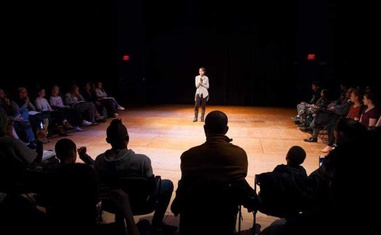




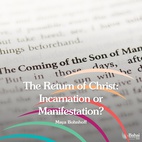





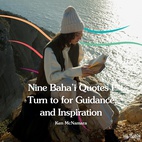
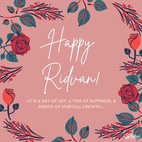

The whole piece was really wonderful and I do need to reread it as well as listen to Radiance’s poems but the above paragraph resonated so deeply; the Faith is the core of our beings!
The whole piece was really wonderful and I do need to reread it as well as listen to Radiance’s poems but the above paragraph resonated so deeply; the Faith is the core of our beings!